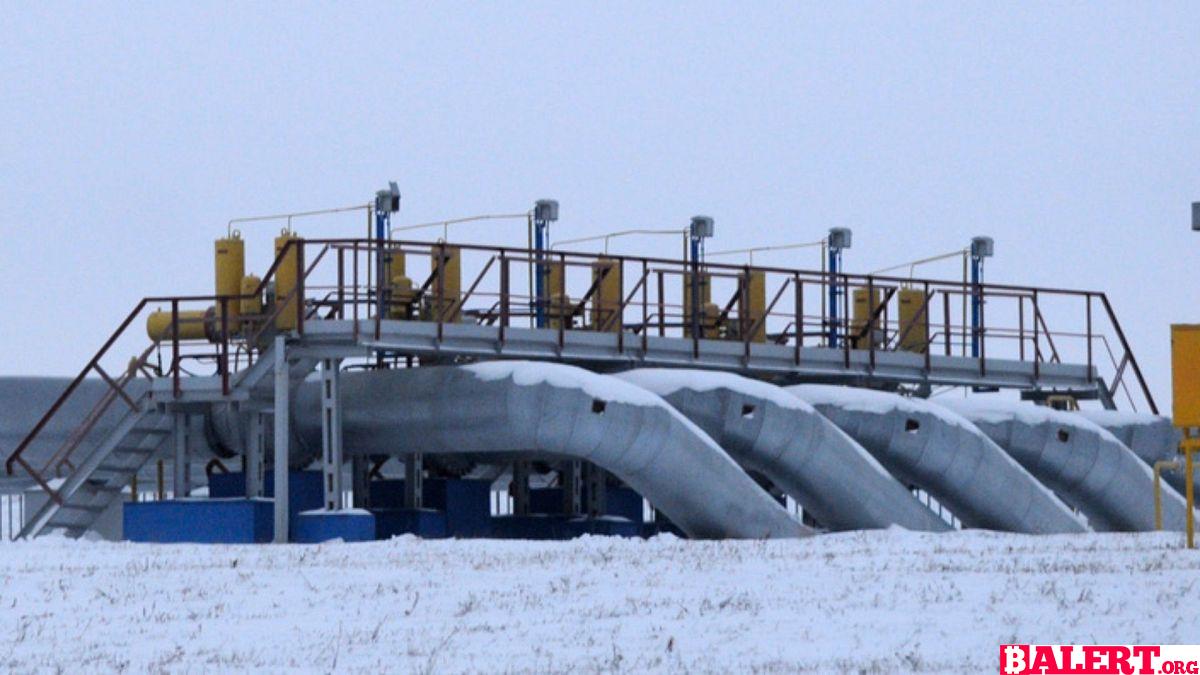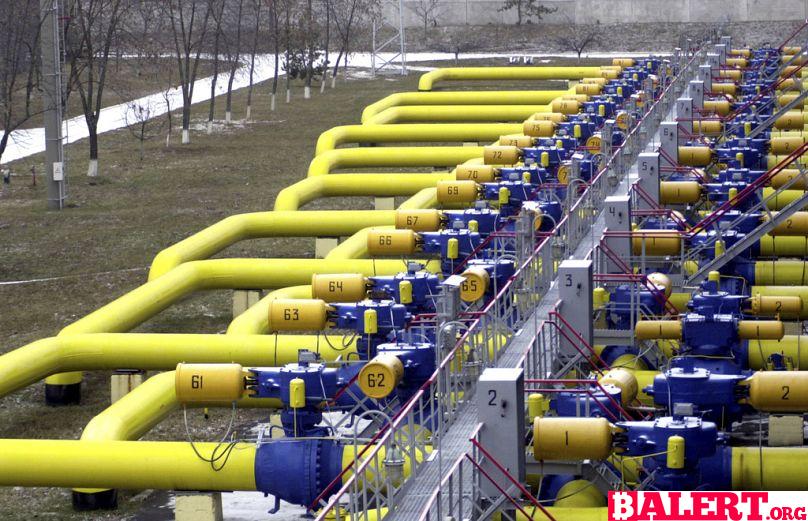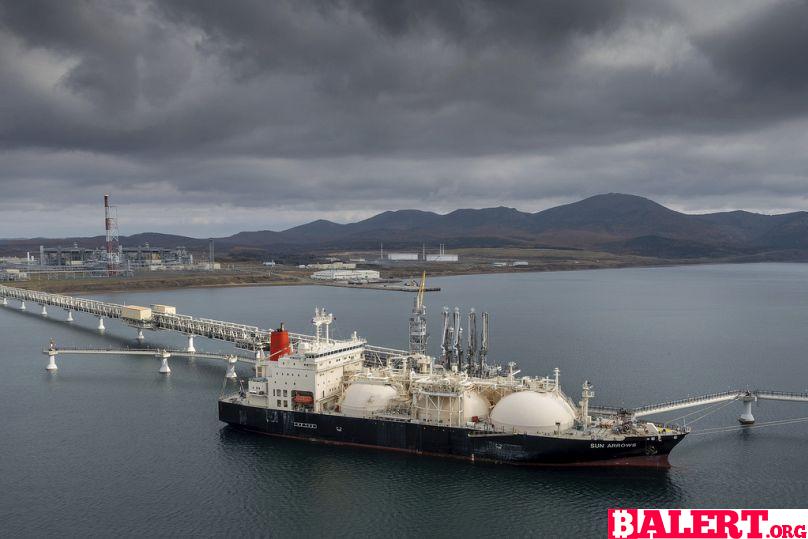World
Ongoing Russian Gas Flow to Europe Amid Conflict: Challenges and Impacts
Explore the complexities of ongoing Russian gas flow to Europe amid geopolitical tensions. Analyze the challenges and impacts on energy security, economic stability, and international relations in this critical examination.

Continued Flow of Russian Gas into Europe Amid Ongoing Conflict
Despite the ongoing conflict in Ukraine, which has persisted for over two and a half years, the flow of Russian gas into Europe remains uninterrupted. This is in stark contrast to the raft of sanctions imposed by the European Union and various individual European nations, who have repeatedly affirmed their commitment to support Kyiv in its struggle against Moscow’s aggression. As Ukraine continues its military operations, including incursions into Russia’s Kursk region—home to a vital gas measuring station in the town of Sudzha—questions arise about the continued gas flow.
The town of Sudzha serves a crucial role in the natural gas supply chain, facilitating the transit of gas from western Siberia through Ukraine and into the EU, which subsequently distributes it to countries like Austria, Hungary, and Slovakia for electricity generation and heating purposes. Verification of control over the Sudzha station is challenging due to military secrecy and limited access for observers and journalists. Nonetheless, Ukraine has maintained the integrity of its pipeline systems throughout the war, allowing the gas to flow uninterrupted into Europe. On Tuesday, the Ukrainian gas transmission system operator reported that approximately 42.4 million cubic meters of gas were scheduled to pass through the Sudzha station, aligning with the average flow over the preceding month.
Prior to the onset of the war, Kyiv and Moscow had established a five-year agreement that mandated Russia to deliver specified volumes of gas through Ukraine’s pipeline network—an infrastructure developed during the Soviet era—to Europe. This arrangement allowed the Russian state-owned energy giant Gazprom to earn revenue from gas sales while Ukraine benefited from transit fees. As this agreement approaches its conclusion at the year’s end, Ukrainian Energy Minister German Galushchenko has made it clear that the country has no intention of extending the deal.
Impact of the War on Energy Supply

Before the full-scale invasion launched in February 2022, Russia supplied nearly 40% of Europe’s natural gas, utilizing pipelines that traversed the Baltic Sea (Nord Stream), as well as routes through Belarus, Poland, Ukraine, and the Turk Stream under the Black Sea to Bulgaria. Following the outbreak of hostilities, the Kremlin curtailed most gas supplies through the Baltic and Belarus-Poland pipelines, citing disputes related to payment demands in rubles. The Nord Stream pipeline suffered sabotage, with investigations into the incident remaining inconclusive. Recent reports suggest Ukrainian involvement, prompting German authorities to issue an arrest warrant for a Ukrainian citizen, while Kyiv consistently denies any connection, attributing blame to Russia instead. Moscow, for its part, alleges that the United States orchestrated the attacks, a claim Washington has denied.
The interruption of Russian gas supplies precipitated an energy crisis across Europe. Germany invested billions in establishing floating terminals to facilitate the import of liquefied natural gas (LNG) via maritime routes, a significant shift from traditional pipeline deliveries. As prices surged, consumers were compelled to reduce consumption, leading to Norway and the US stepping in as primary suppliers to fill the void left by Russian gas. The European response to the cutoff was one of viewing it as energy coercion, with plans announced to eliminate Russian gas imports entirely by 2027.
Challenges in Reducing Dependence on Russian Gas

Despite these efforts, Europe has not completely banned Russian gas imports, a situation underscored by the financial benefits that Moscow derives from these transactions—supporting the Kremlin’s budget, stabilizing the ruble, and ultimately financing its military endeavors. Approximately 3% of Europe’s gas imports still traverse Sudzha, which is part of the broader 15% of imports that originated from Russia last year. The ongoing reliance on Russian gas places European nations, particularly Austria, Slovakia, and Hungary, in a precarious position as they scramble to secure alternative energy sources.
The European Union has drawn up plans aimed at ceasing Russian fossil fuel imports by 2027, but progress has varied significantly among member states. For instance, Austria has ramped up its Russian gas imports from 80% to 98% over the last two years, while Italy, although it has reduced direct imports, continues to receive Russian gas through Austria. Additionally, the EU has maintained its LNG imports, which constituted 6% of total imports last year. Early data from this year indicates that LNG shipments to France have more than doubled.
Moreover, EU members Romania and Hungary have brokered gas agreements with Turkey, which in turn sources gas from Russia. According to Armida van Rijd, a senior research fellow at the Royal Institute of International Affairs in London, “Russian gas is being laundered through Azerbaijan and Turkey to meet continued high European demands.” She further noted that while European attempts to curtail reliance on Russian gas are commendable, the political landscape complicates the complete diversification of energy supplies, especially as many nations grapple with inflation and a rising cost-of-living crisis.
In response to the ongoing situation, the EU has recently agreed to implement a new series of sanctions against Russia, specifically targeting LNG supplies for the first time after multiple delays in the approval process. Hungary has frequently obstructed the bloc’s efforts to impose sanctions on Moscow, a reflection of its heavy dependence on Russian energy and its comparatively amicable relations with the Kremlin, diverging from the stance of many of its European counterparts.
World
Dominique Pelicot Testifies in Harrowing Rape Trial
Join us as Dominique Pelicot courageously testifies in a harrowing rape trial, shedding light on the complexities of trauma and justice. Her powerful story raises crucial questions about the legal system and the importance of support for survivors.

Dominique Pelicot Takes the Stand in Shocking Rape Trial
In a courtroom drama that has captivated France and garnered international attention, Dominique Pelicot, the man at the center of a harrowing rape trial, finally addressed the court. With tears streaming down his face, he recounted how his wife had been instrumental in helping him cope with a tumultuous past marked by trauma. He revealed that he had endured a sexual assault at the tender age of nine while hospitalized, and he also witnessed a gang rape during his teenage years while working as an apprentice electrician on a construction site.
“She didn’t deserve this, I acknowledge that,” Mr. Pelicot stated, his voice barely audible as he struggled to convey his emotions. The gravity of the situation weighed heavily on him, and the courtroom fell silent, straining to catch his every word.
Now 71 years old, Mr. Pelicot faces serious allegations of drugging his wife, Gisèle Pelicot, whom he has been married to for half a century, over a span of nearly ten years. Prosecutors contend that he used drugs to render her comatose, allowing him to rape her repeatedly. Furthermore, authorities allege that he went so far as to invite numerous men into their home, facilitating a nightmarish scenario where they, too, engaged in the assault of his wife.
Overall, 51 men, including Mr. Pelicot, are on trial concurrently, primarily facing charges related to the aggravated rape of Ms. Pelicot. Among them, one individual has already pleaded guilty to similar crimes, admitting to drugging his own wife to assault her and inviting Mr. Pelicot to partake in the horrific act while she was incapacitated.
Mr. Pelicot’s unexpected testimony came after a tumultuous start to the trial. Just a week in, he was stricken with severe health issues that forced him to miss four consecutive days in court. The head judge ultimately decided to postpone proceedings, as Mr. Pelicot was diagnosed with kidney stones, a kidney infection, and prostate complications, adding yet another layer of complexity to this already harrowing case.
World
Meta Bans Russian State Media Outlets from Social Media Platforms
Explore the implications of Meta’s decision to ban Russian state media outlets from its social media platforms. Understand the impact on information dissemination and the ongoing battle against misinformation in the digital landscape.

Meta Imposes Global Ban on Russian State Media Outlets
In a significant move, Meta Platforms, Inc., the parent company of Facebook, has announced the prohibition of Russian state media outlets, including RT (Russia Today) and Rossiya Segodnya, from all its social media platforms. The decision stems from the company’s concerns regarding the deceptive strategies employed by these media organizations to execute covert influence operations across the internet.
Meta made this announcement on Monday, emphasizing that the ban will be enforced worldwide across its various platforms, such as Instagram, WhatsApp, and Threads. The rollout of this ban is expected to take place over the coming days.
Statement from Meta
A spokesperson for Meta elaborated on the decision, stating, “After careful consideration, we have expanded our ongoing enforcement actions against Russian state media outlets. As a result, Rossiya Segodnya, RT, and other affiliated entities are now banned from our applications globally due to their involvement in foreign interference activities.”
For further insights into this development, watch the video in the player above.
World
Trump Recalls Alleged Assassination Attempt While Golfing
Explore Donald Trump’s chilling recollection of an alleged assassination attempt he experienced while enjoying a round of golf. Delve into the tense moments and his reflections on safety, fame, and the unpredictability of public life.

In a recent interview on the social media platform X, Republican presidential nominee Donald Trump recounted a harrowing incident he claims to have experienced while playing golf. Trump described how, during a peaceful Sunday morning round with friends, the tranquility of the day was abruptly shattered by the sound of gunfire in the air.
“It was a beautiful day, everything was just perfect,” Trump reflected. “Then all of a sudden, we heard shots being fired—probably around four or five in total.” He went on to explain that a Secret Service agent was the first to spot the suspect, who was allegedly armed with an AK-47, a powerful assault rifle.
“The agent saw the barrel of the weapon and immediately took action, returning fire at the barrel and aiming in the direction of the bushes,” Trump detailed. “I would have loved to have sunk that last putt, but we decided it was best to leave the scene promptly.”
Trump expressed his gratitude towards the agents and a vigilant civilian who aided in tracking down the suspect, who was eventually apprehended following a high-speed chase.
Suspect Faces Multiple Federal Gun Charges
The FBI has identified the suspect as Ryan Wesley Routh, accusing him of targeting Trump during his time at the golf club in West Palm Beach, Florida. According to an FBI report, Routh had allegedly hidden among the hedges of the golf course for an astonishing 12 hours. Authorities discovered an SKS-style assault rifle, a GoPro camera, and a bag of food at the scene.
The 58-year-old Routh is now facing two serious federal gun charges. If convicted on both counts, he could face a combined maximum sentence of 20 years in prison. Notably, neither of the charges is directly related to an assassination attempt. The first charge pertains to possessing a firearm despite a prior felony conviction, which carries a potential 15-year sentence, a fine of $250,000 (€225,000), and three years of supervised release.
The second charge involves possession of a firearm with an obliterated serial number, which could result in a five-year prison term, the same financial penalties, and also three years of supervised release. As the investigation continues, additional charges could be forthcoming.
While the motive behind Routh’s actions remains unclear, his digital footprint reveals strong political affiliations, particularly concerning issues surrounding Ukraine and China. Routh consistently expressed support for Ukraine across various social media platforms, even claiming to have orchestrated a recruitment scheme for international volunteers aiming to assist Ukraine in its fight against Russia’s invasion. This behavior has been denounced by Ukrainian soldiers and members of the International Legion, who disavowed Routh’s actions and motives.
-

 Business7 months ago
Business7 months agoThe Significance of Jackson Hole: A Central Banking Tradition
-

 Tech6 months ago
Tech6 months agoNew Leaks and Features About the Samsung Galaxy S25 Ultra
-

 Article9 months ago
Article9 months agoCreative Design Applications Developed with Artificial Intelligence
-

 Business6 months ago
Business6 months agoBhutan’s Strategic Investment in Bitcoin: A New Era for the Himalayan Kingdom
-

 Business8 months ago
Business8 months agoObituary: Dan Collins
-

 World6 months ago
World6 months agoThierry Breton Resigns: Impact on European Union Leadership
-

 Gaming6 months ago
Gaming6 months agoNew Details and Trailer Released for Dead Rising Deluxe Remaster
-

 Gaming6 months ago
Gaming6 months agoNew Details for Alan Wake 2 and PlayStation 5 Pro Announcement












